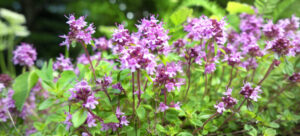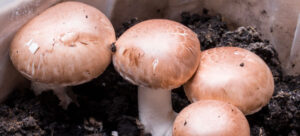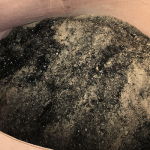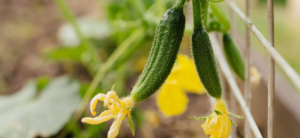
In the realm of sustainable gardening, "Cover Crops" stand out as a cornerstone practice, offering myriad benefits to both the soil and the subsequent plants it nourishes. These green guardians of the garden are not harvested but are grown primarily to benefit the soil ecosystem.
This article delves into the essence of cover crops, their benefits, the types of cover crop seeds available, optimal planting times, and the best cover crop choices for your garden.
What are Cover Crops?
Cover crops, often referred to as "green manure", are plants grown to cover the soil rather than for the purpose of being eaten. They play a pivotal role in protecting and enhancing soil health through their growth cycle, offering a natural, efficient means to manage soil fertility, prevent erosion, and suppress weeds.
What are the Benefits of Cover Crops?
Incorporating crop covers into your garden brings several advantages:
- Soil Erosion Control: They protect the soil from erosion by rain or wind.
- Soil Fertility: By fixing nitrogen in the soil and adding organic matter, erosion control plants improve soil fertility.
- Weed Suppression: The dense growth of cover crops can effectively suppress weeds, reducing the need for chemical herbicides.
- Pest and Disease Management: Certain cover crops can break pest and disease cycles by acting as a barrier or by attracting beneficial insects.
- Water Management: They help in water retention and reduce water runoff, maintaining soil moisture.
Discovering the Best Cover Crop to Plant for a Lush Garden
Choosing the best crop covers to enhance your garden's soil health is a key step in sustainable gardening practices. Cover crops, such as legumes, rye, and clover, play a pivotal role in improving soil structure, adding organic matter, and fixing nitrogen.
Legumes
Legumes, including clovers and vicia (vetches), are among the top choices for gardeners. Their unique ability to fix nitrogen from the air into the soil makes them invaluable for promoting vigorous plant growth and reducing the need for chemical fertilizers.
Rye
Rye is another excellent cover crop seed, well-loved for its deep roots that break up hard soil, helping with water infiltration and preventing soil erosion. It's a perfect winter cover crop, preparing the ground for spring planting.
Clover
Clover varieties, especially crimson clover, are favored for their quick growth and nitrogen-fixing capabilities. They are ideal for interspersing with other crops, enriching the soil, and attracting beneficial insects.
Choosing the Best Cover Crop Seeds For Your Garden:
The best cover crop seeds for your garden depends on your specific goals. If improving soil nitrogen is your aim, legumes are your best bet. For soil structure and erosion control, rye stands out. Clover is the go-to for a fast-growing, nitrogen-rich option.
Incorporating these crop covers into your gardening routine supports soil health, promotes biodiversity, and paves the way for a more sustainable and productive garden. By understanding the strengths of each cover crop, you can make an informed decision to benefit your garden and the environment.
When to Plant Cover Crops for a Thriving Garden
Cover crops are essential for sustainable gardening, significantly enhancing soil health through crop rotation. Understanding the right planting season for these beneficial plants can make a big difference in your garden's success.
- Spring: Spring is the time to plant summer cover crops like buckwheat and cowpeas. These crops prepare the soil for summer vegetables by fixing nitrogen and suppressing weeds.
- Summer: As summer peaks, consider planting fast-growing cover crops that will mature before fall. Sorghum-sudangrass is an excellent choice to improve soil structure and add organic matter.
- Fall: Fall planting is crucial for winter cover crop seeds such as rye and vetch. These crops protect the soil from erosion and enhance fertility for the upcoming spring planting.
- Winter: In mild climates, winter is an opportunity to grow cover crops that will rejuvenate the soil for spring. Mustard and clover can be planted in late winter to enrich the soil with nutrients.
Incorporating cover crops into your gardening routine is a key strategy for soil health and sustainability. By selecting the appropriate crops for each season, you ensure a productive and environmentally friendly garden year-round.
Cover Crops Help Protect Against Climate Change and Water Pollution
Green manures are champions in sustainable agriculture, fighting climate change, and enhancing water quality. By covering the soil, they reduce erosion, preventing soil and pollutants from entering our waterways. This not only preserves clean water but also supports aquatic life. Furthermore, cover crops capture carbon dioxide, a greenhouse gas, through carbon sequestration, helping mitigate climate change. Their deep roots break up soil, improving water infiltration and reducing runoff. Adopting cover crops is a proactive step toward healthier ecosystems and a stable climate, showcasing the power of plants in protecting our planet.
The Dual Benefits of Cover Crops: Boosting Wildlife Habitats and Livestock Forage
Cover crops play a pivotal role in sustainable farming, offering substantial benefits beyond soil conservation. They are key to enhancing wildlife habitat and providing valuable forage for livestock, contributing positively to biodiversity and ecosystem services.
- Wildlife Habitat: By planting green manures, farmers create a lush environment that supports a wide range of wildlife. These green spaces offer shelter and food for birds, insects, and small mammals. The increased plant diversity attracts beneficial predators that control pests naturally, fostering a balanced ecosystem.
- Livestock Forage: Cover crops like clover, rye, and vetch serve as excellent forage for livestock, providing a nutritious and sustainable food source. This practice supports soil health while reducing the need for external feed inputs. Livestock benefit from a diverse diet and farmers benefit from healthier soils and reduced feed costs.
Incorporating cover crops into farming practices enriches the land, supports wildlife, and sustains livestock. This approach exemplifies the principles of sustainable farming, where every planting decision promotes a healthier ecosystem for today and the future.
Final Thoughts On Using Cover Crops In Your Garden
Crop Covers are a garden's best friend, offering a sustainable and efficient way to improve soil health, manage pests and weeds, and enhance water conservation. By choosing the right type of cover crop seed and planting at the appropriate time, gardeners can reap the benefits of healthier soils and more robust plant growth in the seasons to come.
Embrace the practice of planting cover crops, and watch as your garden transforms into a more productive and sustainable ecosystem.
















